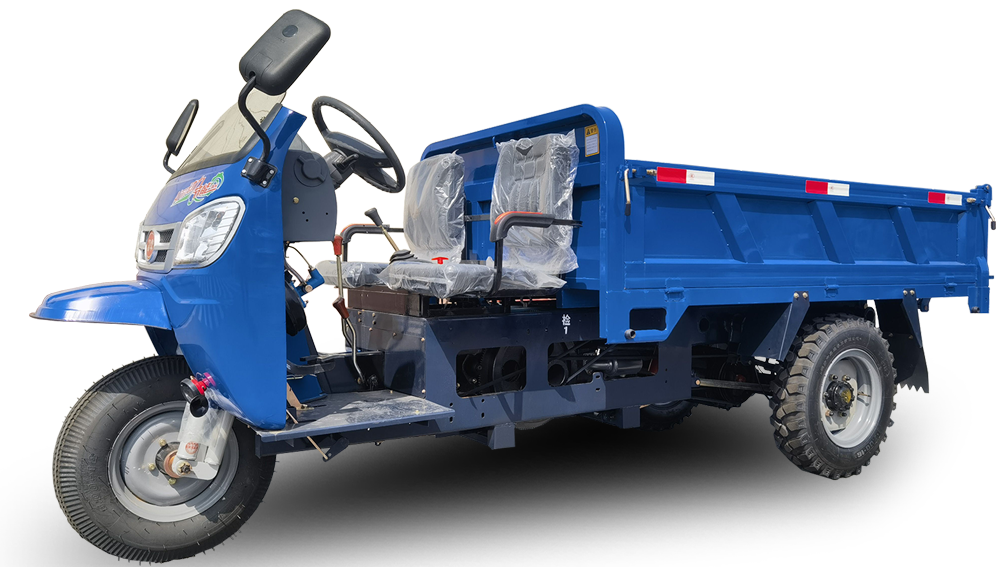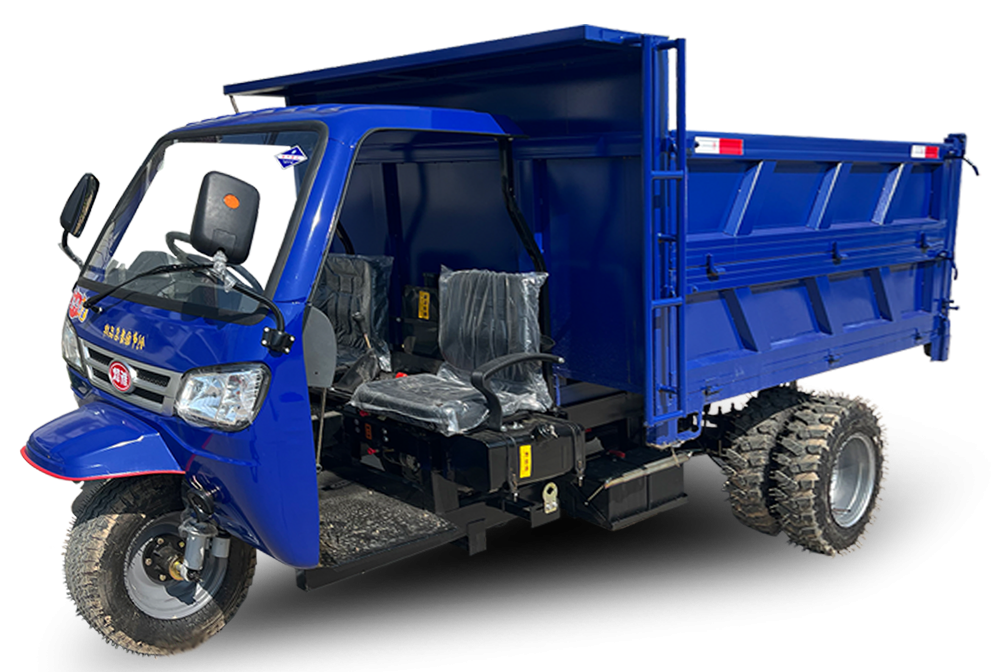Diesel Three-Wheeler in Agriculture: A Versatile Workhorse for Boosting Rural Productivity
Diesel three-wheelers have become an indispensable tool for modern small-scale agriculture in rural areas of Asia, Africa, and Latin America. Affordable, rugged, and adaptable, these three-wheelers bridge the gap between traditional labor and mechanized efficiency. This article explores their multifaceted role in agriculture and their transformative impact on rural livelihoods.
- Core Agricultural Applications
Diesel three-wheelers are designed to solve a variety of agricultural tasks:
A. Crop Transportation
Harvest Transportation: Transporting large harvests (e.g., rice, wheat, vegetables) from fields to storage facilities or markets.
Agricultural Distribution: Quickly transporting perishable foods such as fruits and dairy products to local markets with minimal spoilage.
For example: In the Punjab region of India, modified three-wheelers with extended cargo beds can carry up to 1.5 tons of wheat. For example, Lezi Power Max T3 tricycle, with a load capacity of 2-5 tons, can carry more cargo at a time, minimizing spoilage.

B. Mobile farm machinery
Towing implements: Attach plows, seed drills or trailers for land preparation and seeding.
Irrigation support: Deliver water tanks or pump fuel to remote fields.
C. Livestock management
Animal transport: Move poultry, goats or cattle between pastures and markets.
Feed distribution: Deliver feed and supplements to livestock pens.

D. Agrochemical application
Sprayers: Install pesticide or fertilizer sprayers for precise crop treatment.
Seed/fertilizer transport: Efficiently distribute inputs to large plots of land.
- Better than traditional methods
Cost-effectiveness: Lezi diesel tricycles cost 60-70% less than tractors and can be used by small farmers.
Fuel efficiency: Under heavy load conditions, Lezi diesel engines consume 20-30% less fuel than gasoline engines.
Terrain adaptability: Reinforced suspension and high ground clearance enable the vehicle to navigate muddy, unpaved farm roads.
- Regional success stories
India: Power Max T6 three-wheelers are the main means of transporting sugarcane and cotton, and also serve as mobile shops for rural traders.
Nigeria: Farmers in Kano State use Lezi diesel three-wheelers to transport sorghum and peanuts, replacing donkey carts and reducing labor costs by 40%.
- Challenges for agricultural use
Emissions and pollution: Older diesel models emit particulate matter, affecting air quality in intensively cultivated areas.
Maintenance costs: Frequent exposure to dust and moisture accelerates wear on the engine and transmission.
Fuel accessibility: Remote areas may face diesel shortages or price fluctuations.
Solutions:
Equip engines with diesel particulate filters (DPFs).
Train farmers to perform basic maintenance (e.g., clean air filters, change engine oil).
Government subsidies for biofuel blends (e.g., B20 biodiesel).
- Innovations that will shape the future
Hybrid diesel-electric models: Reduce fuel use and emissions while maintaining heavy-duty torque.
Smart agriculture integration: GPS-guided three-wheelers for precision planting and soil sampling.
Solar accessories: Roof-mounted panels to charge lights or sprayer pumps.
Economic and social impacts
Empowering smallholder farmers: By reducing reliance on manual labor, three-wheelers free up time for farmers to diversify their income sources.
Gender inclusion: In Bangladesh, women-led cooperatives use three-wheelers to sell handicrafts and crops, increasing economic independence.
Rural connectivity: Connecting isolated farms to regional supply chains, improving market access and reducing post-harvest losses.

Conclusion
The Lezi diesel-powered three-wheeler embodies pragmatic innovation in agriculture, offering a scalable solution to increase productivity without replacing traditional practices. As sustainable technologies evolve, these vehicles will remain critical to achieving food security and economic resilience in rural communities around the world. From transporting harvests under the scorching sun to traversing monsoon-soaked paths, the diesel three-wheeler is more than just a machine—it’s a lifeline for millions of people.
This article highlights practical applications, regional adaptability, and future trends. If there’s a specific case study or technical detail you’d like to highlight, let me know!
